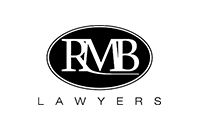Your IP is too valuable to ignore.
Get in touch today for advice on your intellectual property, or technology & branding contracts and disputes.
Get In TouchIntellectual property
Why do I need to protect my IP?
Innovation will put your business ahead of the pack. Innovative ideas may come in a flash or take time. However, implementing those ideas to commercial viability requires significant investment in time and money.
It is that investment that your business must protect through the appropriate use of intellectual property laws, contracts and appropriate business structures. We can help with all of these areas.
If you do not protect your ideas and innovation, the chances are that others will, and you may end up in a dispute with them. We can help you enforce your IP rights or defend you against IP infringement claims.
However, before your business begins implementing its new ideas (and even its old ones), you need to make sure they don’t cut across those of others, making your investment worthless or exposing your business to court action for IP infringement.
So what is intellectual property?
Mainly, it relates to trade marks, patents, design registration and copyright, each of which is established and governed by various statutes of the Federal government.
Each IP right protects a different type of innovation.
- Trade Marks protect the brands that you trade under, including your business name.
- Patents protect inventions and innovations, from touch screens on mobile phones, to chemical structures, mechanical inventions to novel card board packaging materials. They protect “how” things work and can be used to protect the method used to make a product or a process.
- Designs protect the three dimensional shape and configuration of products, and also the pattern or ornamentation applied to them.
- Copyright protects literary works (books and even software), musical works, dramatic works, artistic works (from photographs, paintings to sculptures), films, TV programs and databases, to name a few.
Trade Marks, Patents and Registered Designs are what is known as “registered” rights, and come into existence once they are registered. Registration is applied for at the Australian Intellectual Property Office is known as IP Australia.
Copyright is not a right obtained by registration through IP Australia, but comes into existence when the work comes into existence.
In many instances one or more of these rights may be available, depending on the nature of your idea and innovation, and as one right ends another may become of greater importance.
We can help you navigate this complex IP and legal landscape to create strong IP rights.
Click on the links below for more details on what we do and how we can help you.
Want advice fast?
Call us on 0499 222 028
Sometimes, your business needs to know where it stands on a legal matter.
Whether it’s knowing if you can use a particular brand or technology, how to protect that brand or technology, how to structure your business to take your new technology and innovation forward, or knowing whether your business’s next marketing campaign complies with data privacy regulations and the Spam Act.
We can help you navigate the increasingly complex legal landscape that your business operates in.
Read MoreApart from IP licences, such as software licences, the most common types of IP Agreements your business will encounter are IP assignments.
IP Assignments transfer the ownership of IP from one person to another. Typically these are used:
- in business sale agreements to transfer the IP of the business being purchased from the seller to the buyer;
- business restructuring – to transfer the IP of one company in a business to another; and
- to transfer IP created by a founder of a business or its employees to the business.
As an IP owner you may want to allow someone else to use your IP possibly in return for payment or some other form of remuneration. Alternatively, you may wish to use some else’s IP (without infringing their rights). Permission to use IP is granted under an IP Licence.
Read MoreThere are four types of “legal” documents that are commonly seen on websites. Not all are needed. What is needed will depend on what your website does. Your website:
- will need general Website Terms and Conditions;
- it may also need a Privacy Policy;
- an Acceptable Use Policy – if your website permits users to upload content to it; and
- Terms of Sale – if you sell items or downloads from your website.
The main type of IT agreements that most businesses encounter are:
- software licences
- software development agreements
- website development agreements
They are needed to set out the rights that the parties have in relation to the software or website.
Development agreements, may be for a simple “app” build where the requirements of the buyer are relatively easy to understand and deliver, or they may be very complex requiring the software developer to understand its customer’s business requirements and develop a system of integrated third party owned software to meet those requirements.
Read MoreAs well as IP and IT agreements, your business will inevitably need to enter into other commercial agreements at different points in the development of its business and innovation. The most common form of commercial agreements that your business may encounter include the following:
- Non-disclosure Agreements – to protect your confidential and proprietary information during business discussions;
- Terms of Business – your business’ front line defence in dealing with customer disputes;
- Supply Agreements – to lock in the supply of important materials and products for your business;
- Distribution Agreements – to govern the sale of products through a sales network; and
- Franchising – for licensing rights to operate a franchise and understanding the requirements of the Franchising Code, when it applies and how to apply it.
A franchise is where a brand and proprietary rights are licensed by the franchisor to others to run a business under the brand and using the proprietary rights. Such rights are usually licensed for a defined geographical area or region.
Here in Australia, franchising is regulated by a code of conduct under the Federal governments, Competition and Consumer Act 2010 (Cth). The code is mandatory and so if your business model fits the definition of a franchise under that code, you are bound by it and must comply with it.
Read MoreIf you believe your IP rights or rights under a contract have been breached please contact us.
If you have received a letter demanding you “Cease & Desist” contact us IMMEDIATELY.
Consequently, your business needs a clear idea of where its strands in a dispute at a very early stage to allow you to determine the most efficient dispute resolution strategy.Legal disputes are expensive and time consuming, and a distraction that any business can do without. IP disputes, are no different and are often more difficult than most commercial disputes. There is rarely such thing as a “cast iron case” and costs can mount up quickly even before court action commences. It is not uncommon for costs issues to dominate and often prevent or delay settlement of the dispute.
Whether you are the plaintiff or the defendant we will help your business deal with the dispute in the most efficient matter possible to achieve a commercially sound outcome. This may mean going to court or reaching a quick early settlement on the matter.
Read MoreOften businesses are unaware of the intellectual property they have… or could have had. As your business grows, both organically and by way of acquisition, IP can get left behind, go unprotected or be contained in the wrong company. This can have a devastating effect on a business’ ability to protect their competitive edge – be it a brand, invention, design, software or method of doing business and make it difficult to capture your business’ investment in its IP.
In a sale of business, knowing what IP your business has can have a positive effect on the valuation of your business. Similarly, if you are considering purchasing a business, it is crucial that you understand what IP you will acquire and confirm that the seller is in a position to sell it to you.
Call us today to FIND OUT what IP your business has.
Read MoreIf you are a commercial lawyer, in-house or in a small to medium sized firm that specialises in business sales, mergers and acquisitions and corporate restructures you may be faced with a dilemma when it comes to specialised areas of law such as IP, IT and privacy law. Sometimes you may be able to rely on precedent documents and the risks that come with them.
If you are in private practice, to outsource such advice to a full service firm may run the risk of losing your client to them or result in your matter not getting the attention it deserves.
As a practice firmly focused on IP and IT law, we complement your offering and can provide prompt IP, IT and privacy law support when you need it.
Call us today for IP AND IT SUPPORT on your corporate transactions.
Read MorePrivacy law relates to the use that businesses, governments and other bodies may make of personal information that they have collected or acquired about an identifiable individual. As such it has two sides:
- the businesses, governments and other bodies that want to use that information for commercial gain (in the case of businesses) or to further their aims (in the case of governments and other bodies); and
- the individuals whose personal information is being collected, stored and used by businesses, governments and other bodies.
Whilst there are privacy acts in most Australian states, the main piece of legislation is the Federal government’s Privacy Act 1988 (Cth), which was recently amended to broaden its application to businesses, as well as government bodies.
Call us today to find out if your business COMPLIES with the privacy laws.
Read MoreNot sure where to start?
We're here to make it easy. Call or email us today.















